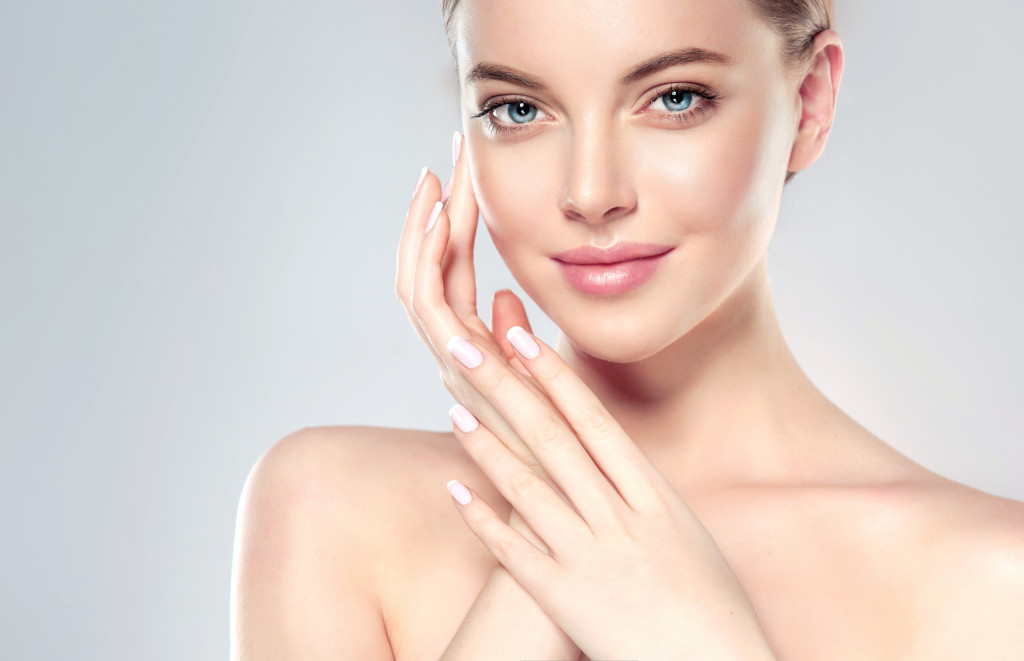The beauty industry promises that the products you buy can address any skin concern that you have. There are tons of options in the market, each one with different ingredients and different claims.
A regular person typically uses more than one skin care product daily. This might include a cleanser, toner, moisturizer, sunscreen, or spot treatment. Others may also incorporate serums, ampoules, emulsions, or overnight and sheet masks.
On average, an American spends about $322.88 on skincare products per year. Throughout a lifetime, a person will buy around $15,000-worth of beauty commodities.
It is a huge investment to achieve the perfect skin. In some cases, you might find yourself spending more money to find the right products for your specific concerns. It can be frustrating to keep trying new products only to wake up with the same problem over and over again.
Acne, in particular, is a common skin condition. It affects people of all ages, but young adults tend to have it more often. Despite the number of products in the market that claim to get rid of acne, clearing your skin is still a challenge.
Perhaps, the problem is not the skincare product you are using.
After-Skincare Routine
Like skincare, makeup products do not suit all skin types. There are makeup products that are better formulated for dry skin. There are makeup products that are specifically for acne-prone skin.
The best makeup for acne does not contain ingredients that are known to trigger a breakout. Oils, silicons, lanolin, sodium chloride, petrochemicals, and D & C Red cause acne because they can clog pores or cause irritation. People who are suffering from acne should also stay away from makeup products that contain fragrance, specifically benzaldehyde which is highly comedogenic.
More importantly, even if you are using makeup that is safe for acne-prone skin, you need to remove it at the end of the day. Wearing makeup overnight will only clog your pores and irritate your skin. You will wake up the next day with pimples all over your face.
Skincare Product Storage
Your skincare products are not meant to be exposed to very high temperatures and humidity. Temperature can decrease the effectiveness of some ingredients in your skincare products. Vitamin C, for example, is sensitive to heat. It can start to denature when exposed to 86 degrees Fahrenheit (30 degrees Celsius).
Leaving your skincare products in the bathroom may not be a good idea. The warmth generated from hot showers increases the ambient temperature in the bathroom which can alter the efficacy of skincare products.
Many skincare products need a cooler ambient temperature to remain stable. Placing skincare products in the refrigerator ensures a longer shelf life and makes the application feel soothing.
Overly Consistent Routine
Your skincare routine does not have to be consistent throughout the year. Trying new skincare products frequently will not help your skin because they need around 4 to 6 weeks of use to take effect. However, being inflexible is also bad for your skin. Your routine needs adjustment for changes in the weather and other factors.
The basics do not have to change throughout the year. However, you may need a different moisturizer for summer and winter. You may also want a different sunscreen when you head to the beach.
Lifestyle as an Acne Trigger
What you apply to your skin does not matter if your lifestyle is the root source of your acne. Skincare does not rely on the products that you put on. Your overall physical health has a huge impact on your complexion, too.
It does not matter if the active ingredients in your skincare products are potent. If you are eating a lot of fatty foods and drinking a lot of sugary beverages, your skin will continue to react badly. To achieve healthy skin, you need to eat a balanced diet. Experts say eating complex carbohydrates reduces the risk of acne. Add skin-friendly food options, too, such as yellow and orange fruits and vegetables, leafy greens, seeds and nuts, and fatty fishes into your diet.
Moreover, sit down and relax every once in a while. There is a connection between stress and acne. When you are stressed, your body releases stress hormones that can increase the production of sebum on your skin. This process makes you more prone to pimples. Find ways to manage your stress to keep your skin looking smooth and healthy.
Acne is common, but it can have a negative impact on a person’s life, especially for teens and young adults. It is a source of insecurity. That is why many people spend so much money on anti-acne skincare. However, other factors can lead to acne that makes skincare products ineffective.
